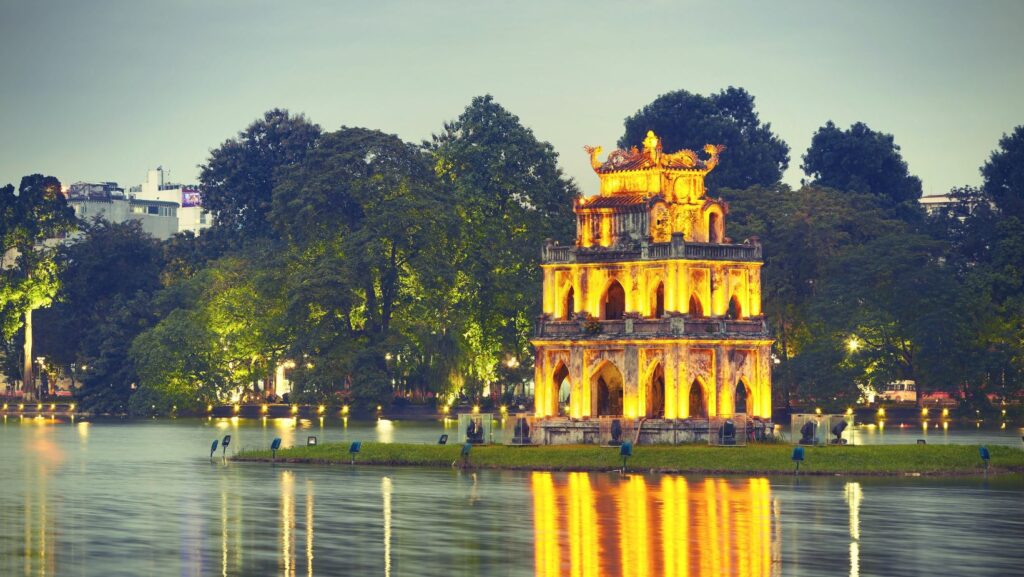
Vietnam, with its vibrant culture and stunning landscapes, is becoming an increasingly popular destination for expatriates and retirees seeking a cost-effective lifestyle. The allure of affordable living, coupled with the charm of its cities and rural areas, prompts many to wonder about the actual costs of living in this Southeast Asian nation.
How Much Does it Cost to Live in Vietnam
Vietnam offers an enticing combination of low living costs and high quality of life, making it an attractive destination for expatriates and retirees. The monthly expenses in Vietnam can vary significantly based on the location, lifestyle choices, and personal needs of an individual. Here’s a breakdown of the main components that contribute to living costs in Vietnam.
Housing Costs
 In Vietnam, housing varies from city to city but generally remains affordable. For example, in major cities like Ho Chi Minh City and Hanoi, a one-bedroom apartment in the city center costs on average $500 per month. In contrast, the same can be found for around $250 in smaller cities such as Da Nang and Hoi An. Renting a three-bedroom apartment in the city center will cost about $1,000 in larger cities and about $500 in smaller cities.
In Vietnam, housing varies from city to city but generally remains affordable. For example, in major cities like Ho Chi Minh City and Hanoi, a one-bedroom apartment in the city center costs on average $500 per month. In contrast, the same can be found for around $250 in smaller cities such as Da Nang and Hoi An. Renting a three-bedroom apartment in the city center will cost about $1,000 in larger cities and about $500 in smaller cities.
Food and Grocery Expenses
Vietnam is known for its street food and local markets which offer fresh produce at low prices. A meal at an inexpensive restaurant costs about $2-$3, while a three-course meal for two at a mid-range restaurant averages around $20. Monthly grocery expenses for one person might range from $100 to $200, depending on dietary habits and preferences.
Transportation Costs
Public transportation in Vietnam is highly affordable, with a monthly pass costing approximately $10. Those preferring private transportation can expect to pay about $0.50 per liter of gasoline. Motorbike rentals are popular and economical, typically costing around $50 to $70 per month.
Housing Costs in Vietnam
Renting Accommodations
 Rental prices in Vietnam depend largely on the city and the type of accommodation. For instance, a standard one-bedroom apartment in the heart of Ho Chi Minh City or Hanoi might cost around $500 per month. This price includes basic amenities but varies with additional luxuries or a more central location. In contrast, similar accommodations in smaller cities like Da Nang or Nha Trang are typically available for about $250 per month. Apartments farther from city centers offer lower prices, averaging around $150 per month. Rent generally includes security, basic furnishings, and sometimes utilities.
Rental prices in Vietnam depend largely on the city and the type of accommodation. For instance, a standard one-bedroom apartment in the heart of Ho Chi Minh City or Hanoi might cost around $500 per month. This price includes basic amenities but varies with additional luxuries or a more central location. In contrast, similar accommodations in smaller cities like Da Nang or Nha Trang are typically available for about $250 per month. Apartments farther from city centers offer lower prices, averaging around $150 per month. Rent generally includes security, basic furnishings, and sometimes utilities.
Buying Property
Buying property in Vietnam presents a different set of financial considerations. Foreigners can legally own property in Vietnam but are restricted to buying condominiums, with land ownership remaining exclusive to Vietnamese nationals. Prices for a mid-range condo in major cities start from $100,000, and luxury units can fetch up to $300,000 or more. Locations like Da Nang and Nha Trang also provide attractive options for investors, with newer condos available from $60,000. Transaction costs and property taxes are additional factors buyers need to consider, as they can significantly affect the overall expenditure. The real estate market has seen steady growth, making property investment appealing despite the limitations faced by foreigners.
Transportation Expenses in Vietnam
Public Transportation
 Public transport is widely available in larger cities like Ho Chi Minh City and Hanoi. Buses are the most common form of public transport, with ticket prices ranging from $0.30 to $0.50 per ride. For those who prefer more comfort, the newly introduced metro systems in these cities charge about $0.50 per trip. Monthly passes, providing unlimited rides, cost approximately $8 to $10, which is economical for regular commuters.
Public transport is widely available in larger cities like Ho Chi Minh City and Hanoi. Buses are the most common form of public transport, with ticket prices ranging from $0.30 to $0.50 per ride. For those who prefer more comfort, the newly introduced metro systems in these cities charge about $0.50 per trip. Monthly passes, providing unlimited rides, cost approximately $8 to $10, which is economical for regular commuters.
Motorbike Rentals
Motorbikes are a popular and convenient way to navigate through Vietnam’s bustling streets. Renting a motorbike can cost anywhere from $50 to $200 per month, depending on the bike’s model and condition. This option provides flexibility and the ability to explore at one’s own pace. However, one must consider additional costs such as fuel, which typically runs around $1 per liter, and occasional maintenance.
Taxis and Ride-Hailing Services
Taxis and ride-hailing services like Grab offer another reliable transportation method. Taxi fares start at about $0.50 per kilometer, while ride-hailing services might offer slightly lower rates due to promotions or discounts.


